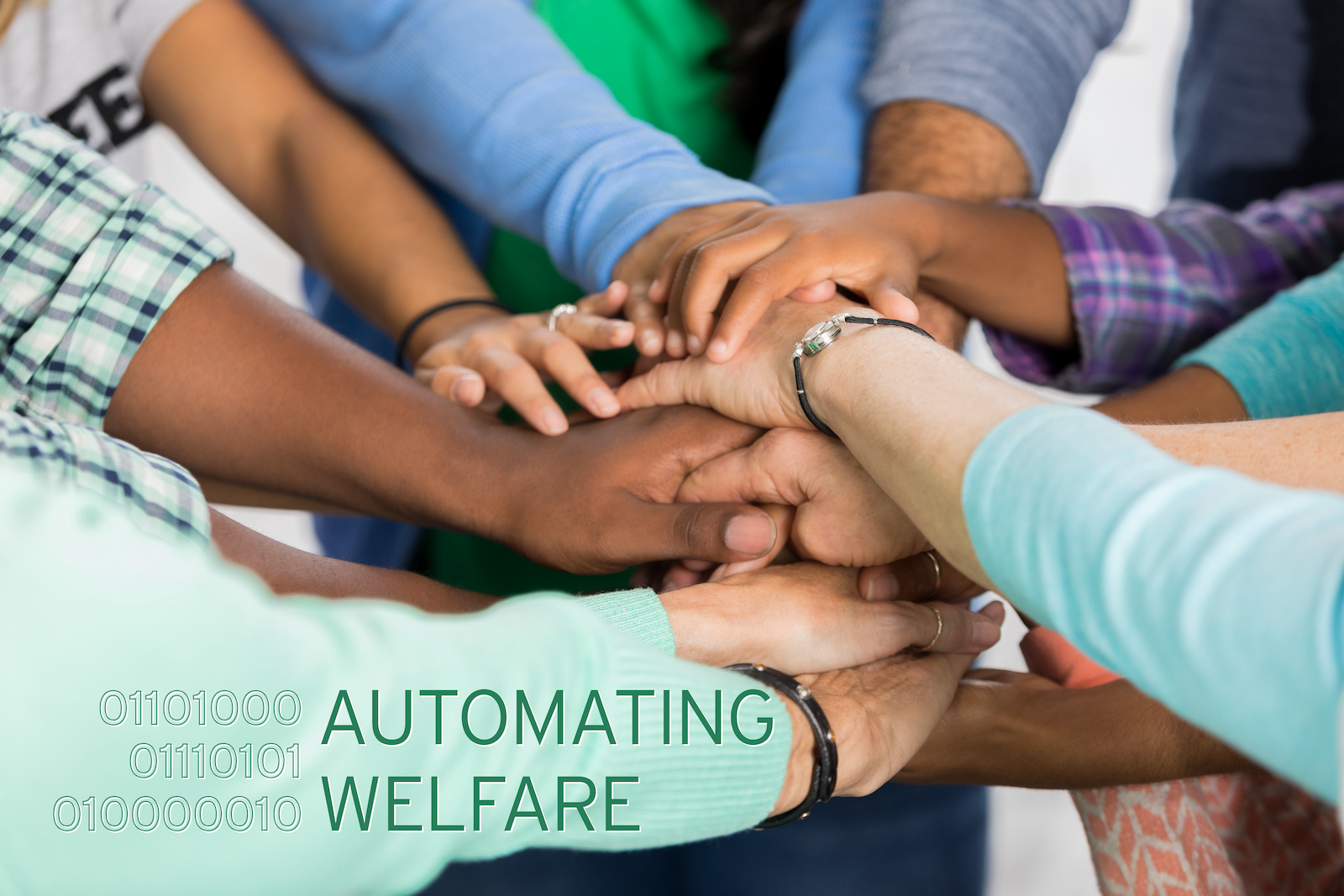Automating Welfare
Automation is thought to increase productivity with less effort and lower costs in many areas. But what happens to our wellbeing when this logic is deployed to support decisions in the welfare sector? The project AUTO-WELF investigates the extensive implementation of automated decision-making (ADM) in the welfare sector.
Publications
Publications
- . (2023). Walter Peissl zum Mitglied des Artificial Intelligence Advisory Boards ernannt. Ita-Newsfeed. Retrieved from https://www.oeaw.ac.at/ita/detail/news/ernennung-walter-peissl-im-artificial-intelligence-advisory-board
- . (2023). Generative Artificial Intelligence. Opportunities, Risks and Policy challenges. EPTA Report 2023 (p. 88). Brussels. Retrieved from https://www.parlament.cat/document/composicio/394503200.pdf
- . (2023). Crosscurrents: Welfare. Media, Culture &Amp; Society, 23, 5. doi:10.1177/01634437231154777
- . (2022). Algorithmen in der Wohlfahrt: Sozial und transparent?. Ita-Newsfeed. Retrieved from https://www.oeaw.ac.at/ita/detail/news/kuenstliche-intelligenz-in-der-wohlfahrt-sozial-und-transparent
Conference Papers/Speeches
Conference Papers/Speeches
-
26/02/2024
, Universität Wien
Doris Allhutter:
Erfüllt AMAS die Ziele des AMS? Profiling von Arbeitssuchenden aus soziotechnischer Sicht und im Blick von Audits.
Bildungskonferenz 2024 "Künstliche Intelligenz im Prüfkontext" -
02/02/2024
, Leipzig
Astrid Mager:
Infrastructures of welfare. Narratives and counter-narratives of data infrastructures in the context of public health insurance and open commons,
Big Data Discourses Conference -
18/12/2023
, Vienna (online)
Doris Allhutter:
Researching Infrastructures of Welfare: practice-oriented research methods in Auto-Welf
Workshop ‘Doing and/in Data’ -
29/11/2023
, Wien
Rafaela Cavalcanti de Alcantara:
“Cambia, todo cambia”: Cuerpo-territorio and buen vivir as lenses to reflect on data commons
STS Austria Conference 2023 -
28/11/2023
, ÖAW, Wien
Astrid Mager:
Automating Welfware: How to open up, re-imagine, and rebuild data infrastructures for the public good
STS Austria Conference 2023 -
28/11/2023
, Wien
Rafaela Cavalcanti de Alcantara:
The Challenge of “Commoning” Smart City Infrastructures: thinking about data integration platforms
STS Austria Conference 2023 -
28/10/2023
, online
Doris Allhutter:
Mind Scripting in Practical Terms
Auto-Welf Lunch Time Series -
25/10/2023
, Vienna
Doris Allhutter:
Infrastructures of Welfare: the datafication of Europe's systems of social protection
STS Talk series of the STS Department at the University of Vienna -
26/09/2023
, Berlin
Doris Allhutter:
AI in Welfare: public policies, public interest, and political mandate
International Workshop: AI Systems for the Public Interest -
14/09/2023
, Vienna
Doris Allhutter:
Künstliche Intelligenz in Obersten Rechnungskontrollbehörden
Rechnungshof Österreich -
19/06/2023
, Cardiff, Wales
Rafaela Cavalcanti de Alcantara:
Smart cities and feminist perspectives on the urban space: Connecting the dots towards the right to the city
Data Justice Conference -
06/06/2023
, Wien
Rafaela Cavalcanti de Alcantara:
“Smart City” Initiatives and Welfare: Reflections on the Datafication of Urban Life
TA23 Konferenz: Infrastrukturen der Zukunft -
16/03/2023
, Aachen
Doris Allhutter:
Grenzobjekte, Diffractions & Co: Die feministischen Wurzeln der STS und ihre Zirkulierungen
Conference: Circulations, Panel: Cyborgs -
23/02/2023
, Turin
Doris Allhutter:
Transforming Welfare Infrastructures in Europe
THESEUS Colloquia -
10/02/2023
, Vienna
Doris Allhutter:
Automating Welfare in Europe
Complexity Science Hub Vienna -
26/01/2023
, online
Doris Allhutter:
Infrastructures of Welfare: concept and methodological considerations
Auto-Welf Lunch Time Series -
29/11/2022
, Copenhagen
Doris Allhutter:
Automating Welfare – Algorithmic Infrastructures for Human Flourishing in Europe
Welfare after Digitalization: Digitalizing Welfare, Outsourcing Responsibility -
23/09/2022
, Wien
Doris Allhutter:
Automating Welfare – Algorithmic Infrastructures for Human Flourishing in Europe
Norface Governance Midterm Conference 2022 -
26/07/2022
, Karlsruhe
Doris Allhutter:
Digital Future(s) of Welfare and the Power of Public Infrastructure
5th European Technology Assessment Conference (ETAC2022) -
06/07/2022
, Madrid
Doris Allhutter:
Reconfiguring ‘unemployment’ through automated decision-making in employment services
Politics of Technoscientific Futures
Across Europe, the welfare sector is facing increasing demands and shrinking resources. Calls to mitigate social hardships more effectively and increase public administration's efficiency suggest introducing data-driven decision-support and enhancement with artificial intelligence (AI).
AUTO-WELF is the first project to analyze automated welfare provision across European welfare regimes. It examines the implications of algorithms and AI for the future of European citizens and societies. The project will provide profound insights into how automated decision-making can support but also harm human wellbeing.
Social Justice and Equity in Europe
Data-based infrastructures in public administration have a significant impact on the living circumstances of citizens and on human agency. ADM systems are shaping not only welfare provision and public management but also how citizens encounter, and are addressed by, the state. In short, they transform the relationship between citizens and the state. This prompts many ethical and political questions regarding transparency and accountability, as well as systemic biases and social inequalities.
AUTO-WELF focuses on the perspective of people implicated in the automation process —the system engineers and designers, the caseworkers who collaborate with ADM systems in making decisions about welfare and service provision, and the citizens whose data feed the systems.
The project will develop groundbreaking knowledge on the consequences of automating welfare in two domains: a) core welfare services, such as employment services, healthcare, and social benefits provision, and b) automation of communal welfare infrastructures and services, including smart city and smart village initiatives that aim at providing automated social infrastructures for community building and urban development. We explore these domains across eight European countries: Austria, Germany, Italy, Portugal, Estonia, Poland, Denmark and Sweden represent different types of the welfare state and various stages of automated decision-making.
Duration
11/2022 - 10/2025
Project team
Funding
AUTO-WELF is funded by the Austrian Science Fund (FWF I 6075) under the CHANSE Programme (Collaboration of Humanities and Social Sciences in Europe) "Transformations: Social and cultural dynamics in the digital age".


